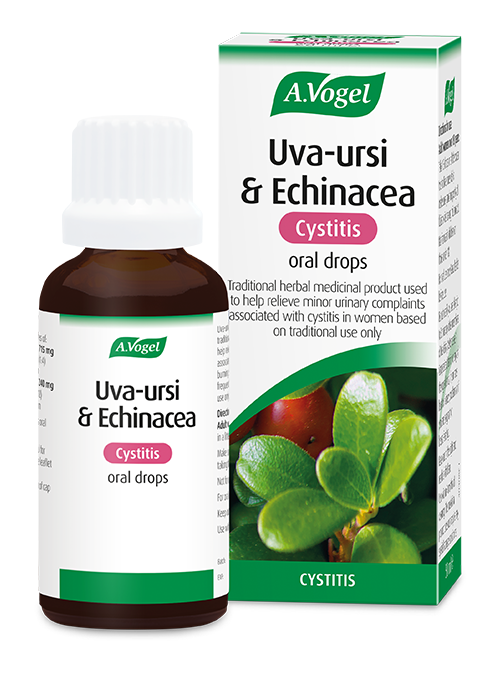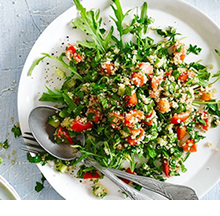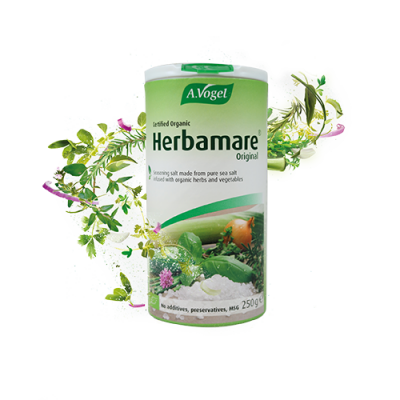Read the full video transcript below
Today's topic
Hello, and welcome to my weekly video blog. And today on A.Vogel Talks Menopause, I'm going to be talking about bladder control problems in the menopause. This is a big one, and it does tend to affect the majority of women at some point going through the menopause. The great news is there are things that you can do to help yourself. This is also known as menopause incontinence, which sounds absolutely horrible, doesn't it?
What causes bladder control problems during menopause?
But what are the main causes for this? Well, there's two main ones. One is just age in general. Unfortunately, our bladder and other pelvic organs, such as the womb and the bowel are supported by muscles called the pelvic girdle muscles, and as we age, these muscles just tend to weaken that little bit, and they can drop slightly, and that means that the organs inside there can sometimes change, even maybe very subtly, but that can be enough.
It may end up pinching the bladder, it may end up squashing the bladder, and, of course, that leads to all sorts of problems with bladder control and bladder emptying.
It's also due to low oestrogen in the menopause and, unfortunately, falling oestrogen can affect the bladder itself. It can weaken the bladder wall, it can thin the bladder, and it can also affect our ability to control the bladder valve, which means we can sometimes lose control a little bit more easily than what we could beforehand.
Symptoms of Menopausal Incontinence
With this happening, when we get a weaker bladder, we can end up having to go to the toilet more and we can become more prone to infections and irritation as well.
Leaking urine
Now, the main symptoms for this, there's quite a few of them. One is we can leak a little bit more. We find it when we laugh, when we cough, when we run, when we exercise. I know for me, I have to watch if I'm jumping on a trampoline, I have to really hold myself in there.
Also if you do heavy lifting as well, you may find that your bladder leaks that little bit. You may find that you get a really sudden urge to go to the toilet very, very quickly. It might come just suddenly out of the blue. It can be very strong as well, and sometimes, it can be really difficult to hold things in until you can find a nearby toilet.
Sudden, strong urge to urinate & increased frequency
You might find that you go a lot more, that you're going more frequently, and sometimes, you won't pass as much. You'll get this sudden urge to go to the toilet, and then find that you're really passing very little urine, and then an hour later, you're going to have to have to go again. So this frequency is a very, very common symptom with this situation. You might find that you wake up a lot more during the night.
Having to get up during the night to urinate
You might find you have to get up two to three times during the night to go to the toilet, and again, very often, it's not a lot that you pass, it just tends to be a little bit. And then, of course, you can't get back to sleep, and if you're getting hot flushes or night sweats, that can contribute to poor sleep as well.
Painful urination & increased UTI’s
It can be painful passing urine. You can sometimes think that you've got a bladder infection like cystitis.
You can go to the doctor, and the doctor will say, "No, there's nothing wrong. There's no infection present." And I know this is a really horrible one, especially if you can't sort it quickly. And this situation will also lead to more urinary tract infections such as cystitis, and the problem with this one is that once you start to treat them by antibiotics, it can lead into a cyclical event where you can keep getting repeat UTIs on and on and on.
5 simple things you can do to help your bladder control during menopause
Now, what can you do about this? As I said, there are things that you can do to help yourself, and a lot of them are really simple.
1. Don’t cut your water intake, increase it!
The most important one is don't cut out your water. It does seem logical though, doesn't it? If you're going to the toilet a lot more, the sensible thing to do would be to cut down on your water or your drinking.
The problem here is that if you do that, your urine will become more concentrated, it will become more acidic, and if your bladder is already thinning, it's already a little bit weak, then that urine will start to irritate the bladder wall, it will start to irritate the bladder valve, and that will make you go to the toilet an awful lot more.
So it's really important here that when you start getting bladder problems, if anything, you should be increasing your water. It can be difficult. Some women find that it's better to sip little and often, rather than taking big drinks of water to keep your intake up. But dehydration, honestly, is one of the major causes of bladder problems in the menopause, and this situation, it can be one of the easiest ones to fix if you just get that water into you on a daily basis.
It's important to drink at night a little bit, and it's a sort of two-headed coin here. If you drink too much, yes, you will wake up in the middle of the night, but if you don't drink enough, your nighttime urine is going to get more acidic, and that's going to wake you up during the night as well. One of the things that we find can be really helpful for all sorts of menopausal problems is when you go to bed, just take a small shot glass of warm water, maybe about half an hour before bed.
Very often, this will be enough to keep everything ticking over and it will save you having to get up so often during the night as well.
2. Limit your intake of bladder irritating drinks
Reduce the caffeine. Irritating drinks will irritate your bladder even more, so, unfortunately, that's going to be your caffeine, which is going to be your tea, coffee, your fizzy drinks. Fruit juices can be really bad during the menopause, and to be honest, whether they're fresh, whether they're organic, or whatever, I tend to say, "Please keep these at a minimum because they're giving you a really sugar hit, and they can affect your urine as well. So these should be avoided, if possible."
And alcohol, you know, some women find that the nights that they drink alcohol are the nights where they tend to get the majority of problems with their bladder, so, sometimes, cutting down on alcohol can make a big difference as well.
3. Strengthen your pelvic girdle muscles
This is really important for all sorts of reasons because if the pelvic girdle weakens, you can end up with a serious prolapse where all the organs can shift quite considerably. You can do the Kegel exercises on a daily basis. All you need to do is Google, and you will find instructions on how to do them. The other great thing for this is Pilates.
I've had so many women come back to me to say they've found an experienced Pilates instructor, they have got private lesson, maybe just one. They've been shown how to do very specific pelvic girdle exercises and over time, that has helped them no end. So this is something that's really worth checking out as well, especially if you've got a stubborn problem and you're finding it difficult to resolve it.
4. Prevent bladder infections
If you're getting an infection, we have a remedy called Uva-ursi. This is licensed for reducing the symptoms of cystitis, and we know that this can be nice and gentle for a lot of women. Again, if you take antibiotics, that can lead to other problems as well.
If you are getting repeat urinary tract infections, there's going to be a link on this page which will tell you how to deal with these specifically, so do take a look if you're in this situation. You can use cranberry as a preventative. Cranberry's great for helping to prevent urinary tract infections. Just make sure that if you're drinking cranberry juice, which I don't recommend but I know some people like, just make sure that there's no sugar in it because that can cause problems with infections as well.
Cranberry tablets, to be honest, are better for you in this instance, if you're wanting to take them long-term.
5. Watch your weight
The other thing is this, watch your weight as well because, unfortunately, one of the things that happens in the menopause, we can put a bit of weight on, and that can affect the pelvic girdle muscles as well.
So I know this is a difficult one, but it's worth trying, again, because that might be a beneficial factor for bladder problems.
Now, hopefully this has given you a little bit of insight. There are so many other things that can do it. These are just basically the main ones that we seem to come across.
Bladder control problems in men over 50
One of the interesting things in the menopause is, and we get told this, women find they're having to get up in the middle of the night two or three times, and then their husbands or partners start to get up in the middle of the night, too.
This is not them just being sympathetic most of the time. We do know that the majority of men who are over 50, or 50% of men over 50, will start to get prostate problems. So this can be a real problem in relationships if you're having to get up and down during the night to go to the toilet and waking your partner up, and then your partner is having to get up and down to the toilet two or three times during that night waking you up, it can lead to really very, very poor sleep.
So if this is your partner, if they are just saying this is just one of the things it is, we do advise that they just get some kind of prostate check as well just to make sure that that's not the issue with them.
Now, I'll look forward to seeing you next week for another edition of A.Vogel Talks Menopause.

Are you Menopausal? Need help with your symptoms? Try our Menopause Symptom Checker.
Answer 3 question to find out if you could be menopausal and get personalised tips and advice straight to your inbox based on your results.










